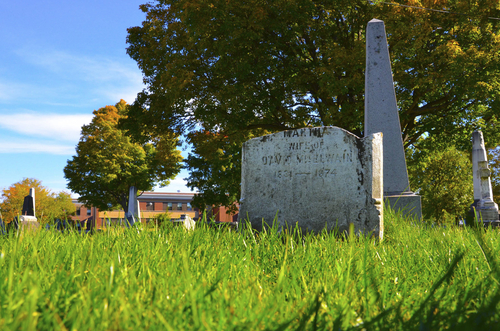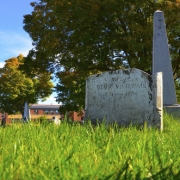Genesis 22 – Abraham Is Willing To Sacrifice Isaac
/0 Comments/in Through The Bible/by Andrea KoelschPart 26 in Pastor David Guzik’s in-depth study of the book of Genesis, expositing through chapter 22 in full. This chapter sees the testing of Abraham, through the oft-examined yet very misunderstood “Binding of Isaac”. Pastor David details each verse of the chapter, as well as highlighting some of the profound ways that this chapter speaks to the personage and mission of Christ Jesus. The chapter concludes with the foreshadowing of Rebekah.
It May Be that the Lord Will Work For Us – 1 Samuel 14:6-7 – July 23, 2024
/0 Comments/in Enduring Words for Troubled Times, Enduring Words with David Guzik, Podcast/by David GuzikThree Marks of Faith
/0 Comments/in Weekly Devotional/by David GuzikThen Abraham stood up from before his dead, and spoke to the sons of Heth, saying, “I am a foreigner and a visitor among you. Give me property for a burial place among you, that I may bury my dead out of my sight.” (Genesis 23:3)
There are two great people of faith referred to in Genesis 23:3. The first is Abraham, who had just carried out one of the most notable acts of faith in the Bible: the willingness of offer his son Isaac (Genesis 22). The other person of faith is referred to with the words his dead, speaking of Sarah, the deceased wife of Abraham. Sarah was a great woman of faith, who by faith received God’s promise to bear a son long past the normal age to become a mother.
This single verse tells us much about great men and women of faith.

Great men and women of faith endure many hardships. Sarah endured the hardship of death and Abraham the hardship of being left behind. Sometimes we think that people of great faith live in a different world, untouched by the pains and concerns of normal life. That isn’t true. Even Jesus learned obedience by the things that He suffered (Hebrews 5:8).
Great men and women of faith are pilgrims, visitors. When Abraham began to negotiate with the sons of Heth for a place to bury Sarah, he began by saying I am a foreigner and a visitor among you. Though Abraham lived in Canaan for more than 30 years, he still thought of himself as a foreigner and a visitor in that land.
Abraham did not feel this way just because he came another place (Ur of the Chaldeans). It was because he recognized his real home was heaven (Hebrews 11:9-10). Moses knew the same, and he taught Israel this principle (Leviticus 25:23). David also knew this truth (1 Chronicles 29:14-15, Psalm 39:12).
As a man of faith, Abraham lived and built in Canaan and left something for his descendants, but he knew his ultimate home was heaven, and he was only visiting this life. His real home was eternal.
Great men and women of faith can receive the part as the whole. Genesis 23 explains that Abraham bought this property for burial. In his travels around Canaan, Abraham had earlier lived in this area and there built an altar to God (Genesis 13:18). He knew this cave and was willing to pay the full price for it.
God had promised Abraham and his covenant descendants all of Canaan as their inheritance (Genesis 15:18-21). Yet, this was the only piece of land that Abraham ever formally owned and possessed. He received the part, but still believed in God’s promise of the whole.
Dear believing friend, we now only know and experience in part (1 Corinthians 13:12). Yet we can trust God’s promise and receive the part as evidence as the whole. One day, all will be fulfilled in Jesus Christ.





